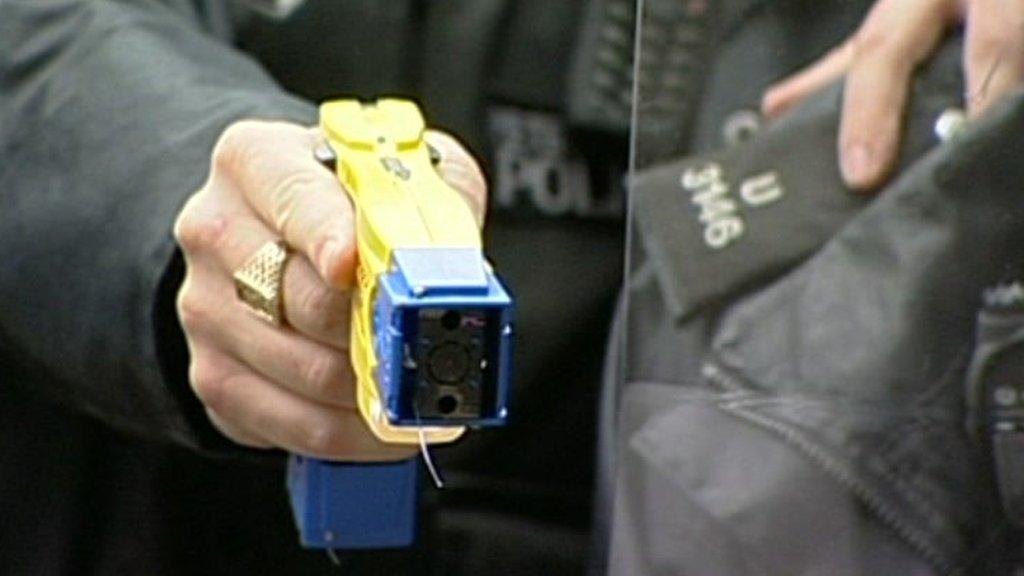'Tasers for all front-line officers' - Police Federation
- Published
- comments
Steve White, Police Federation: "The time for action is now"
All front-line police in England and Wales should be offered Tasers in light of the increased terrorism threat, the head of the Police Federation says.
Steve White said the devices would help protect against "dangerous people" who could be preparing to attack officers.
"We've got to show our officers that we're taking the threat seriously," he told Radio 4's Today.
But Christopher Salmon, a Welsh police and crime commissioner, said the move would be a mistake.
Mr Salmon, Dyfed-Powys police and crime commissioner, said: "Routine arming with Tasers would be a mistake and counter to the traditions of British policing."
Commander Neil Basu, the Association of Chief Police Officers policing lead for Tasers, said he would support a conditional roll out.
Mr Basu said: "Whilst I would support an extended roll out, this must be informed by appropriate assessments of existing threat and risk, the high standards of training must not be diluted and they should only be carried by those who volunteer to do so."
'Respond to threat'
Mr White told The Guardian, external that terrorists seeking to attract attention could attack at any time, anywhere in the UK.
The federation is to vote on the proposal to offer all frontline officers Taser training next month. Some officers may choose not to carry one, it says.
It has been shown that Tasers could keep officers and the public safe, Mr White told Today.
And he said police officers should be able to "respond to the current threat environment".
"We've got to make sure that we give them every opportunity to respond to the threat," he said.
"Because it's not just their personal safety; it's the safety of the public as well."
'Many tools'
He told the programme he was making the call after seeing the "usefulness" of Tasers.
Mr White made a similar call, external when vice-chair of the federation, following the murder of Fusilier Lee Rigby.
Mr Basu added: "Taser is one of many tools and tactics available to help manage threat and risk which is continually assessed.
"The variety of force demographics and the threats faced don't always make it the first or most viable solution.
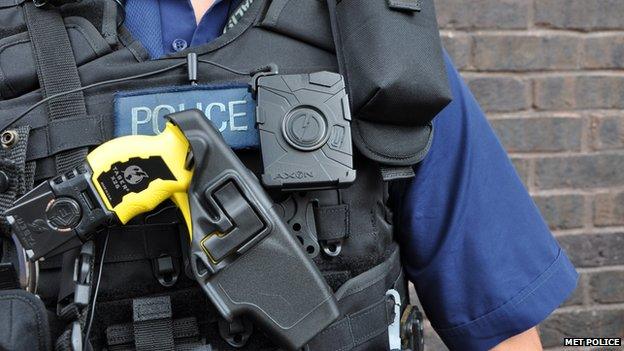
The Police Federation will vote on the proposal next month
"It is for each chief constable to decide the appropriate number of Taser trained officers in their force based on the threat and risk they face."
Tasers were introduced into British policing in 2003 as a non-lethal alternative for firearms officers facing potentially dangerous suspects.
Officers are required to take a training course before being allowed to use a Taser and they are told only to deploy them when threatened with violence.
'Use sparingly'
Between January and June 2014, the weapons were fired 826 times in England and Wales out of the 5,107 occasions they were deployed.
There have been a number of deaths related to the use of the stun guns.
A Home Office spokesperson said: "The use of Taser and the number of specially trained officers is an operational matter for chief officers in each force and is based on an assessment of threat and risk.
"The government is committed to providing the police with the necessary tools to protect individuals and the communities in which they live."
In Scotland, a small number of highly-trained police officers, external are currently allowed to be routinely armed while on duty, and in Northern Ireland every police officer carries a weapon.
Amnesty International UK's arms programme director Oliver Sprague said: "We've always said that Tasers can have a part to play in policing operations where there's a clear risk of death or serious injury to police officers or members of the public - but Tasers should be used sparingly and only by highly-trained officers."
He also queried if there was evidence that a terrorist would be deterred by knowing police officers were armed with Tasers.
Sophie Khan, a solicitor, said the weapons were being used too often.
People who are mentally ill are being tasered; people from a certain minority background are being tasered," she said. " When there is an incident, the taser comes out and the person is tasered without really going through the motions of what it is that's happening in front of them.")
- Published31 January 2015
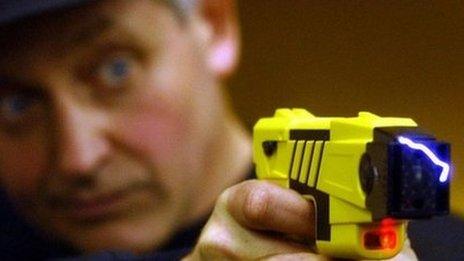
- Published22 July 2014
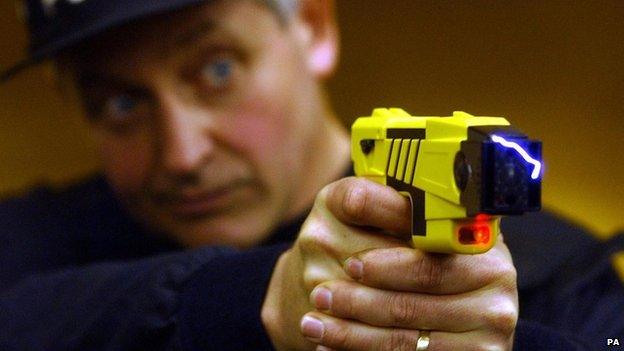
- Published10 September 2013
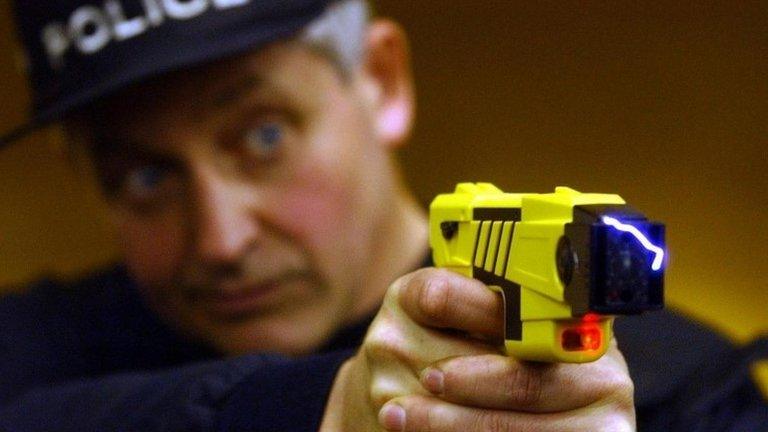
- Published10 September 2013
